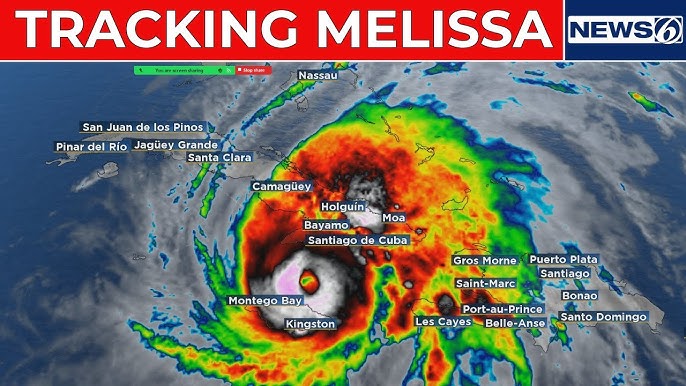
Hurricane Melissa's Path of Destruction
The devastating impact of Hurricane Melissa on Jamaica has left a trail of destruction, with the latest reports indicating that over 500 homes have been destroyed and thousands of people displaced. The storm's powerful winds and heavy rainfall have caused widespread damage to infrastructure, including roads, bridges, and buildings. As a result, many communities have been left without access to basic necessities like food, water, and shelter.
The Jamaican government has responded swiftly to the crisis, declaring a state of emergency and mobilizing rescue efforts to reach affected areas. A team of emergency responders, including military personnel and aid workers, has been deployed to provide assistance to those in need. The government has also established shelters and distribution centers to provide food, water, and other essential supplies to displaced persons. Some of the key relief efforts include:
- Food and water distribution to affected communities
- Establishment of temporary shelters for displaced persons
- Deployment of medical teams to provide emergency care
- Clearing of debris and restoration of critical infrastructure
- Donate to reputable relief organizations, such as the Jamaican Red Cross or the United Nations Development Programme
- Volunteer time and skills to support relief efforts
- Spread awareness about the impact of Hurricane Melissa and the need for ongoing support
- Support local businesses and communities affected by the storm

Bermuda Prepares for Impact
As the island prepares for the impending storm, residents are taking necessary precautions to ensure their safety. The Bermuda government has issued a hurricane warning, with forecasters predicting winds of up to 120mph and heavy rainfall. This warning comes after recent data from the National Hurricane Center indicated that Hurricane Melissa has the potential to bring catastrophic damage to the island.
To prepare for the impact, residents are stocking up on essential supplies, including:
- Non-perishable food items, such as canned goods and bottled water
- Battery-powered radios and flashlights in case of power outages
- First aid kits and medical supplies
- Extra cash and important documents, such as insurance policies and identification
- Staying indoors and away from windows and doors
- Keeping phones charged and having a backup power source
- Avoiding travel and staying tuned to local news and weather reports
- Following evacuation orders and instructions from local authorities
Relief Efforts Underway
The international community has come together to provide significant support to Jamaica, with a substantial influx of aid pouring in from around the world. This includes essential supplies such as food, water, and medical equipment, all of which are crucial in alleviating the suffering of those affected. According to recent reports, over 10,000 tons of food and 5,000 liters of water have been donated to date, highlighting the generosity and solidarity of the global community.
Volunteers are playing a vital role in the relief efforts, working tirelessly to distribute aid and provide support to affected communities. Their selfless efforts have made a significant difference, with many people receiving the help they desperately need. Some of the key activities being undertaken by volunteers include:
- Distributing food and water to affected areas
- Providing medical care and support to those injured or in need
- Assisting with the reconstruction of damaged homes and infrastructure
- Offering emotional support and counseling to those affected
- Making a donation to a reputable charity or the United Nations appeal
- Volunteering time and skills to support relief efforts
- Raising awareness about the situation in Jamaica and the need for support
- Supporting local businesses and organizations that are involved in the relief efforts

Long-term Consequences
The aftermath of Hurricane Melissa has left Jamaica facing a multitude of challenges. Experts predict that the storm's effects will be felt for years to come, with far-reaching consequences for the island's economy, infrastructure, and environment. According to recent data, the Caribbean region is particularly vulnerable to natural disasters, with the World Bank estimating that the economic impact of hurricanes in the region can be as high as 10% of a country's GDP.
In terms of specific impacts, Jamaica can expect to see:
- Significant damage to its infrastructure, including roads, bridges, and buildings
- Loss of livelihoods, particularly in the tourism and agriculture sectors
- Long-term damage to the island's ecosystems, including its coral reefs and forests
- Financial aid to help repair and rebuild damaged infrastructure
- Technical assistance to help the island develop more resilient ecosystems
- Support for small businesses and entrepreneurs to help stimulate economic growth

Frequently Asked Questions (FAQ)
What is the current status of Hurricane Melissa?
As of the latest update, Hurricane Melissa is currently located approximately 300 miles southeast of Bermuda, with maximum sustained winds of 120 miles per hour. The storm is moving northwest at a speed of 10 miles per hour, with forecasters predicting a potential landfall within the next 24 hours. Residents of Bermuda are advised to take necessary precautions and prepare for the worst. Some key facts about Hurricane Melissa include:
- Category 3 hurricane on the Saffir-Simpson Hurricane Wind Scale
- Storm surge of up to 6 feet above normal tide levels expected
- Heavy rainfall of up to 8 inches in some areas, with isolated totals of 10 inches possible
- Non-perishable food items and bottled water
- Flashlights, batteries, and first aid kits
- Battery-powered radios and chargers for mobile devices
- Stay indoors and away from windows and doors
- Keep phone lines open for emergency calls only
- Avoid traveling and stay off the roads unless absolutely necessary

